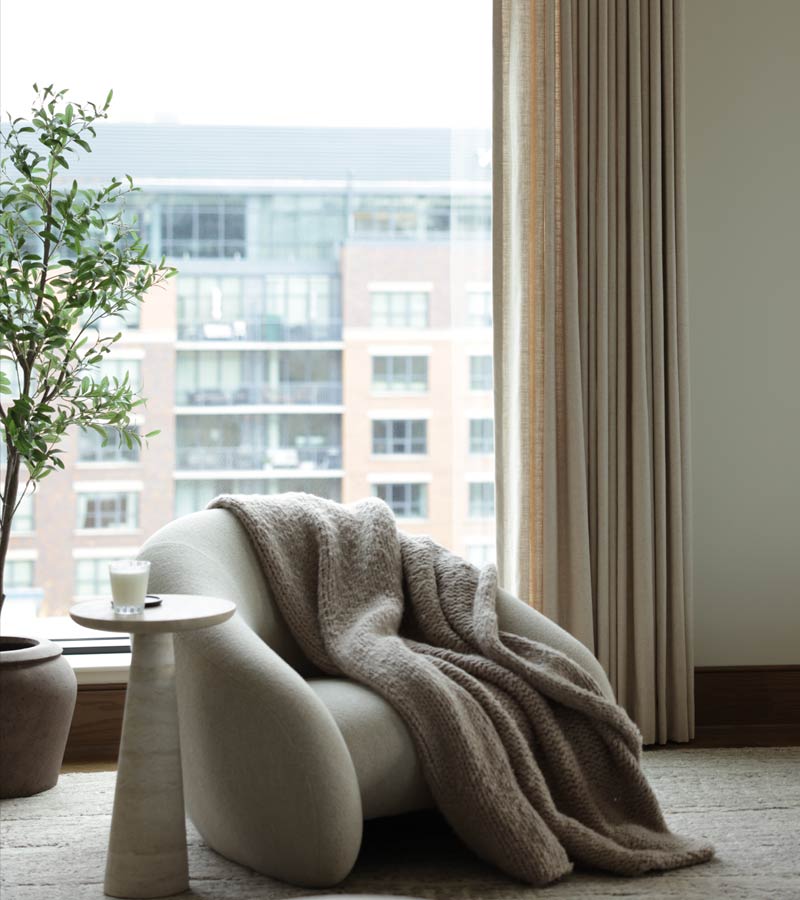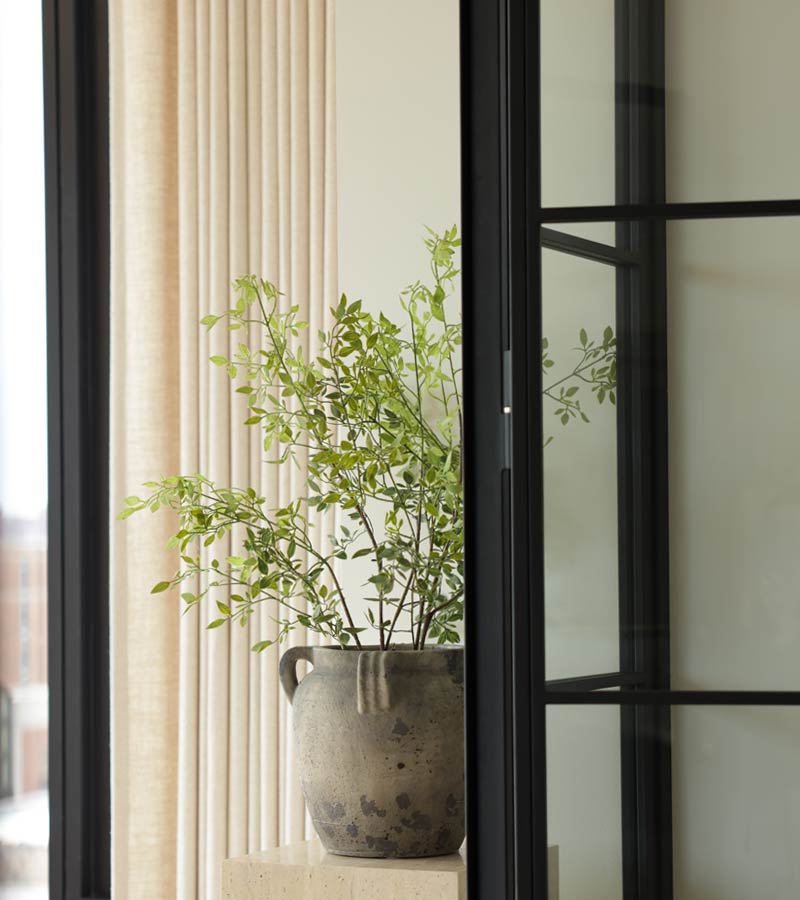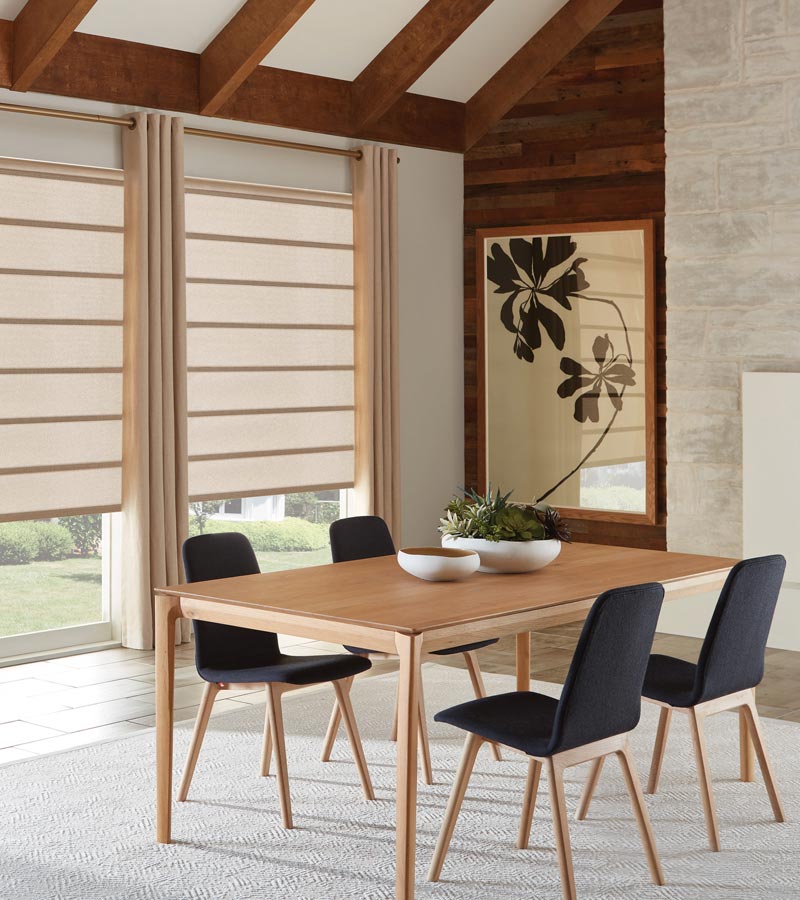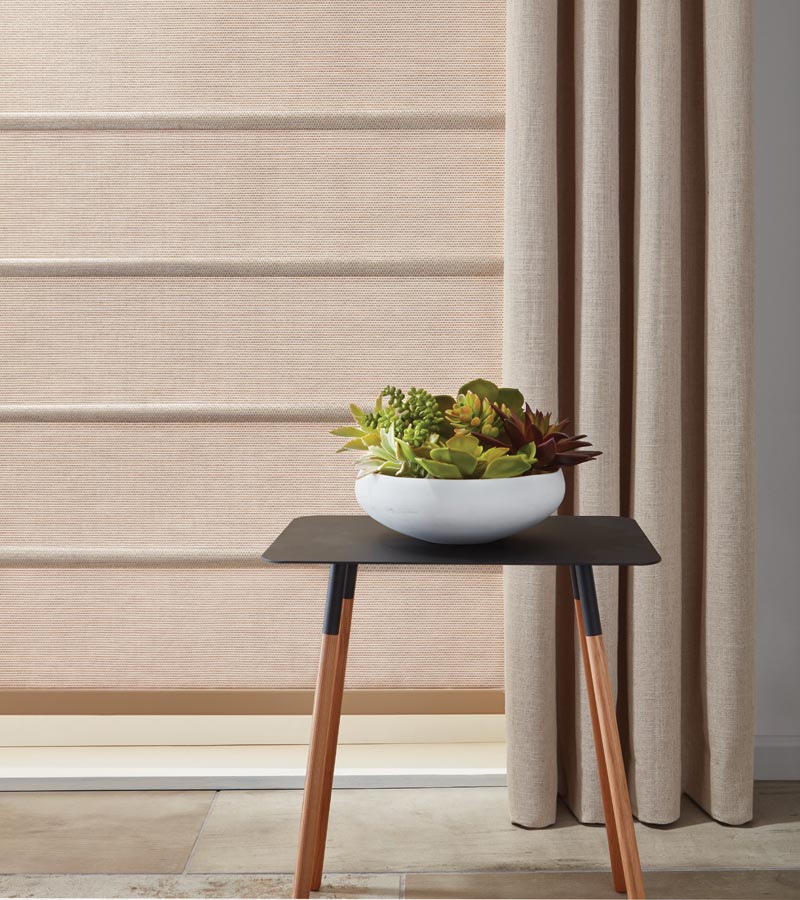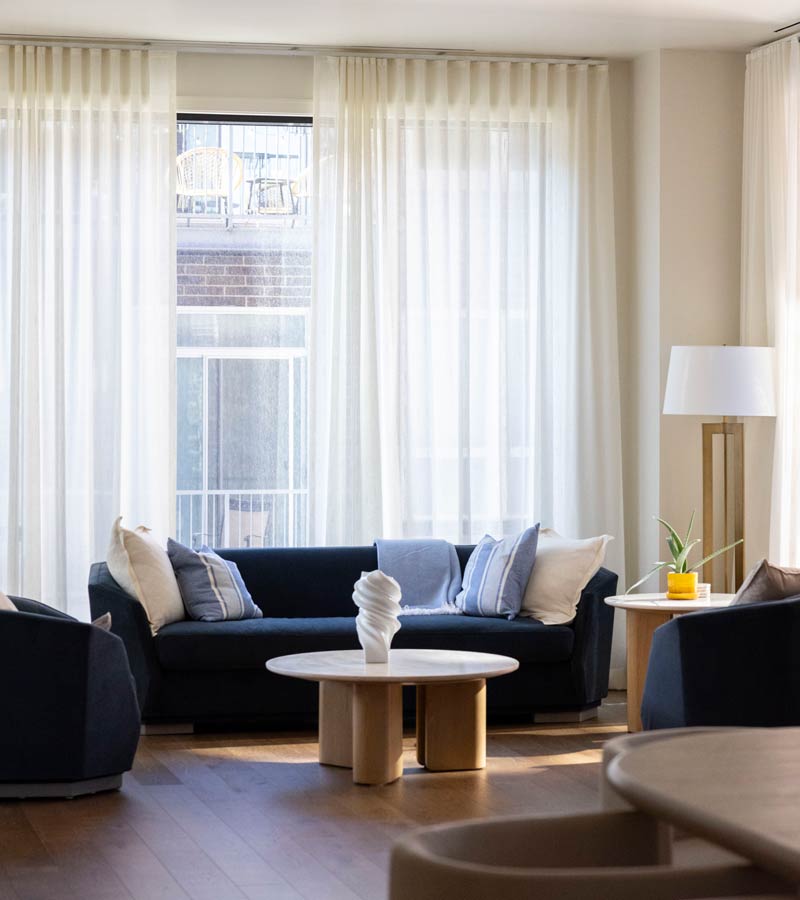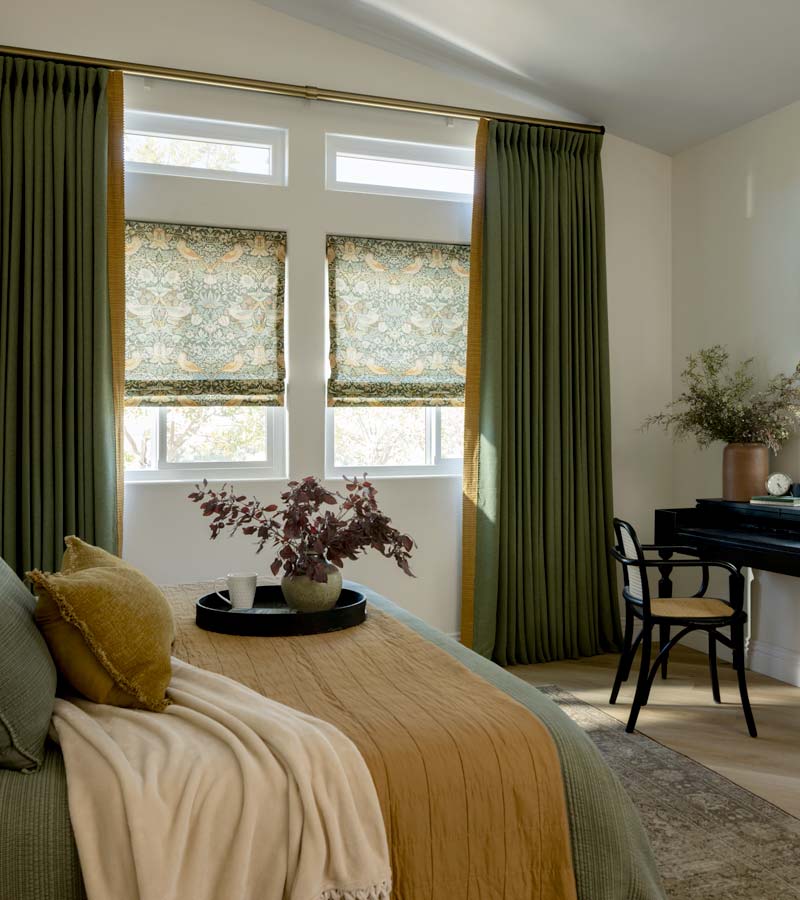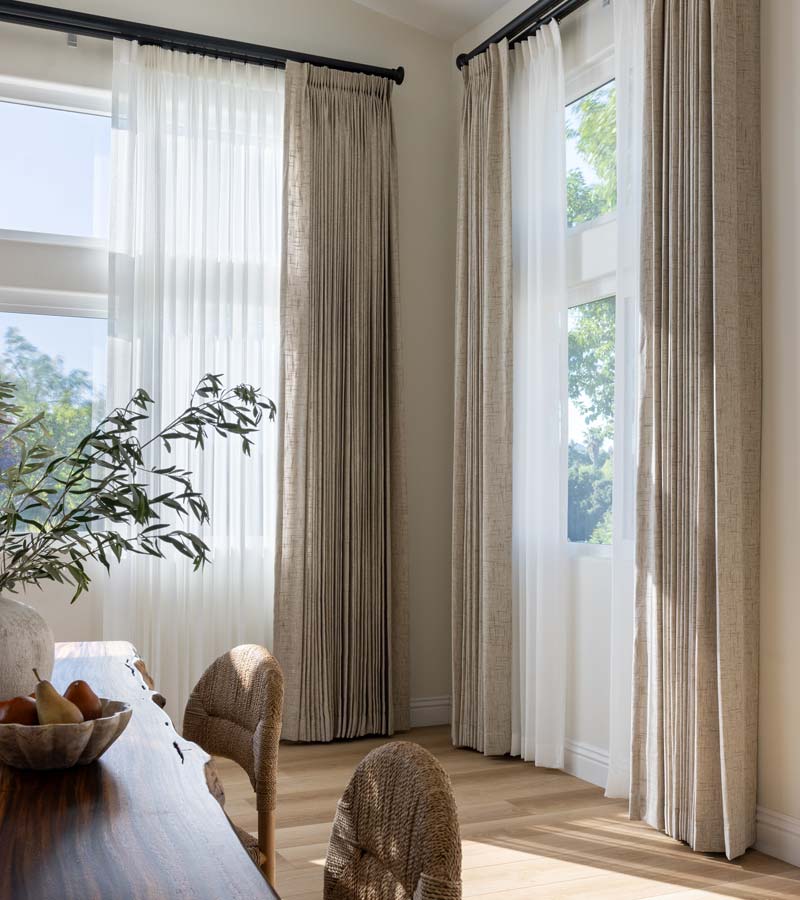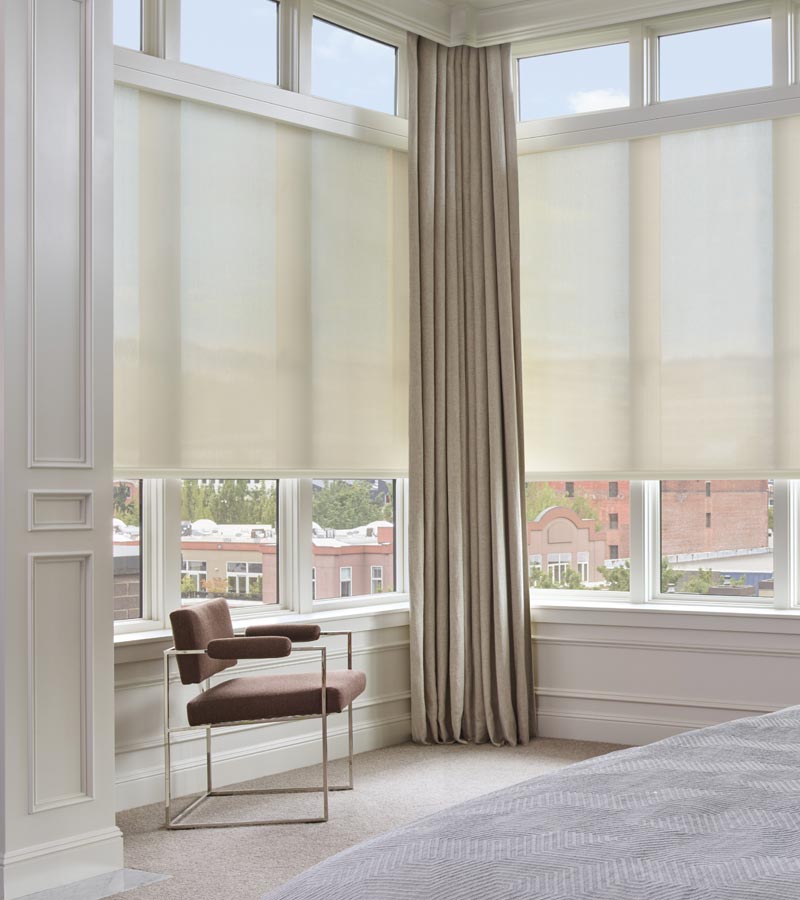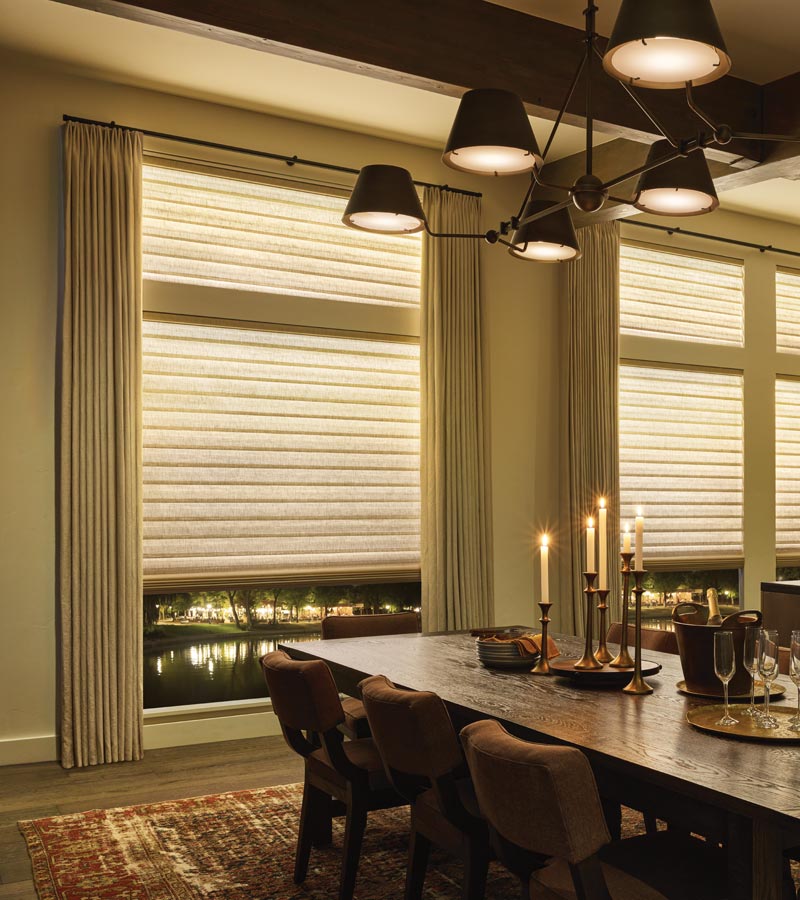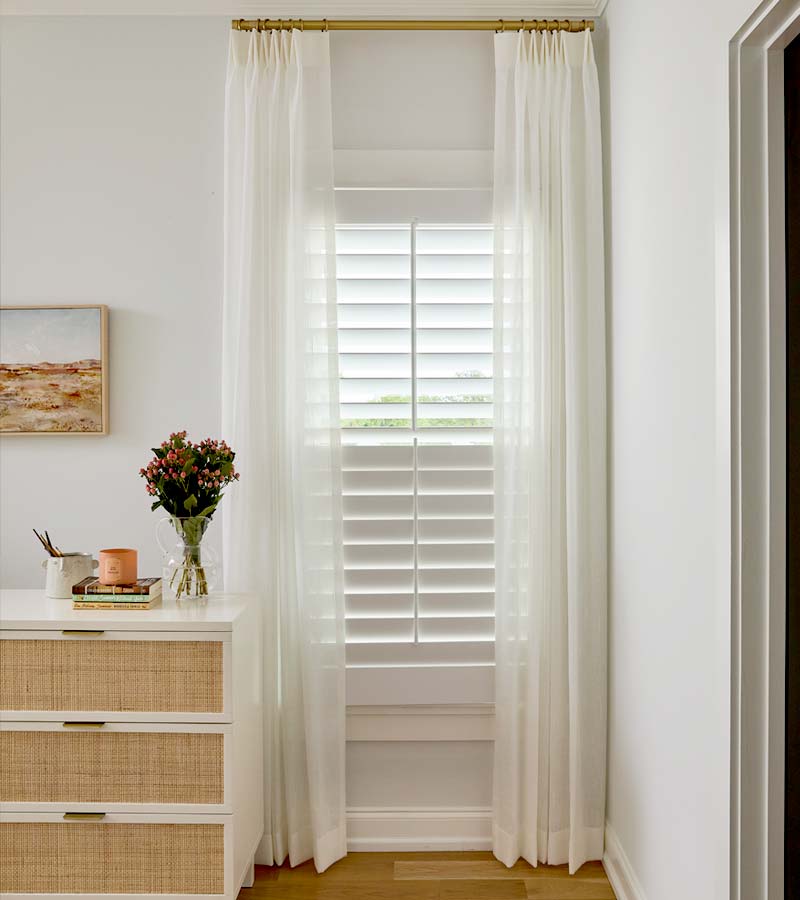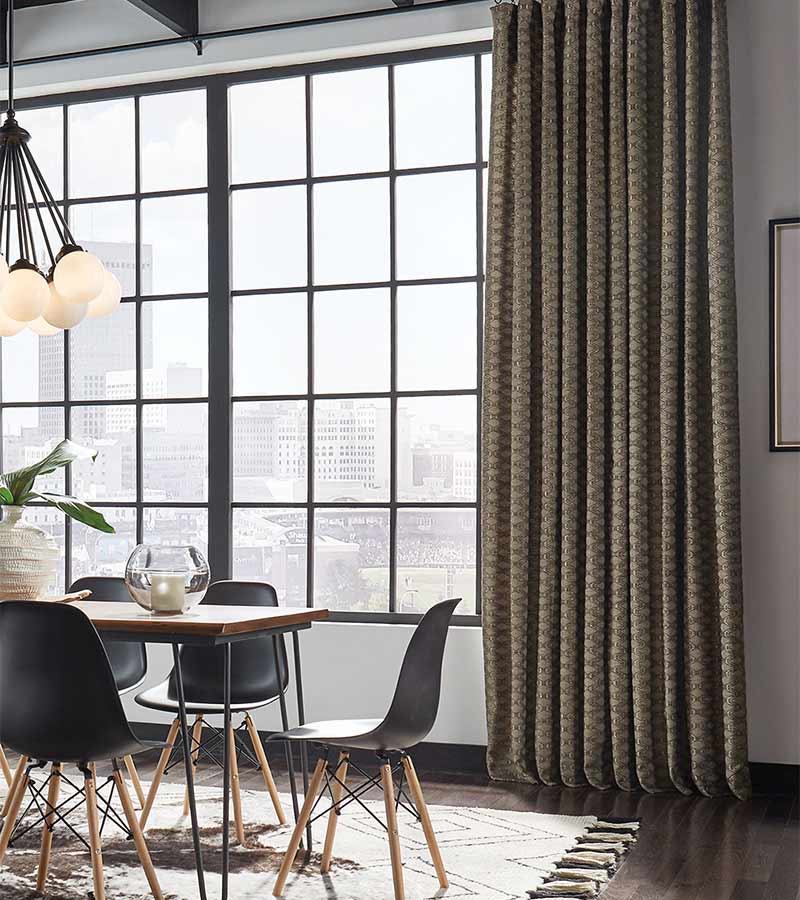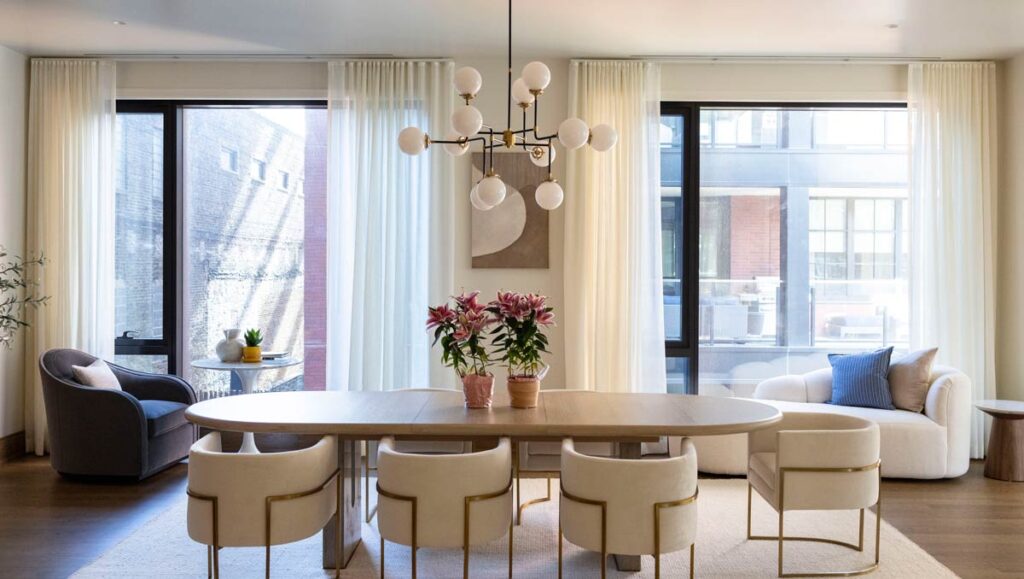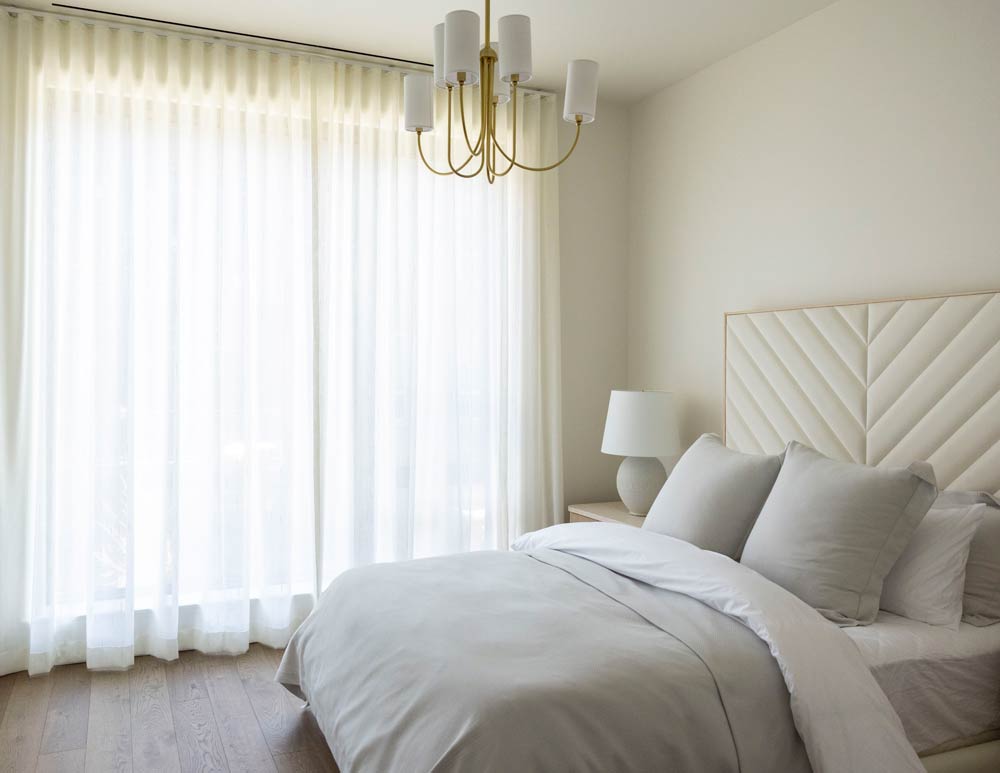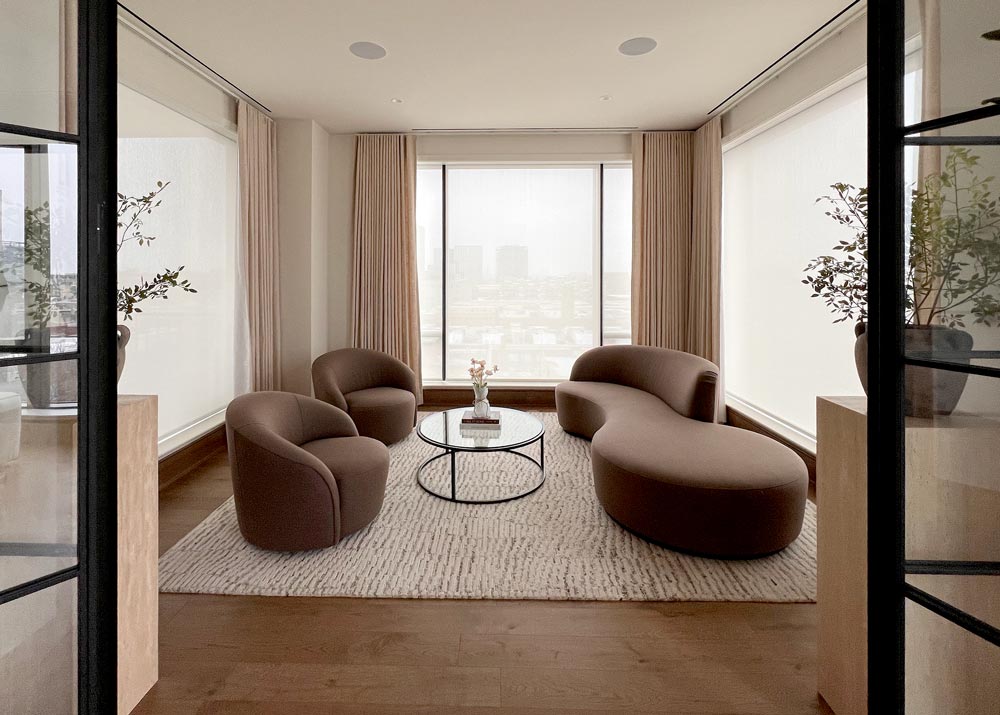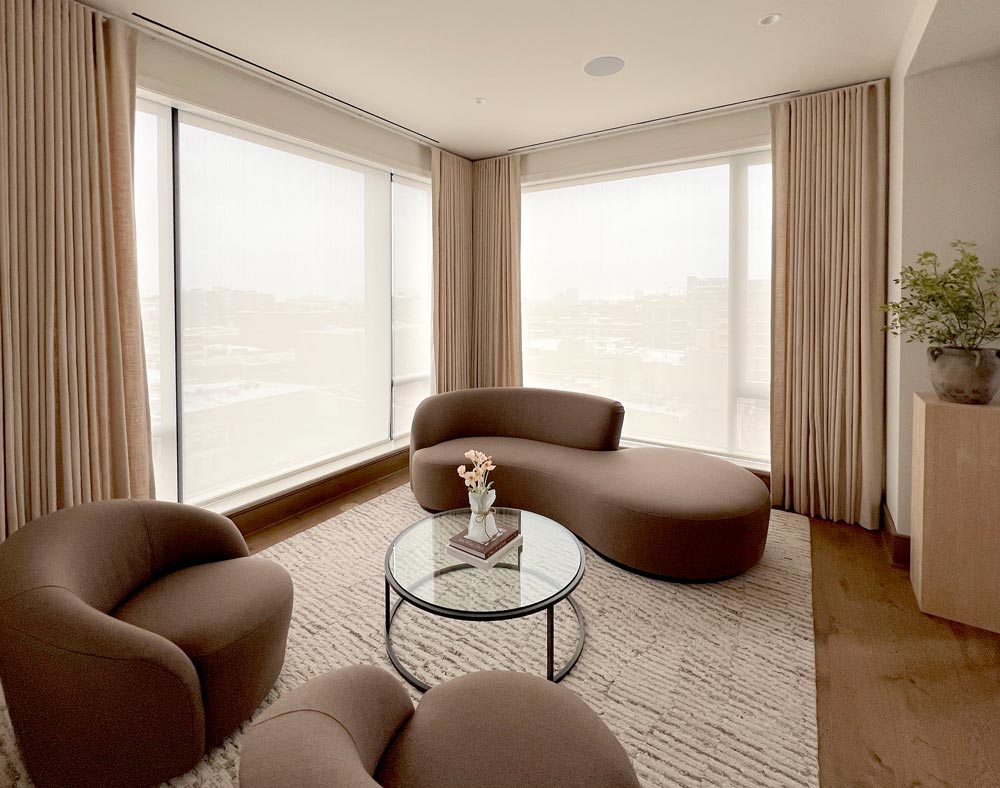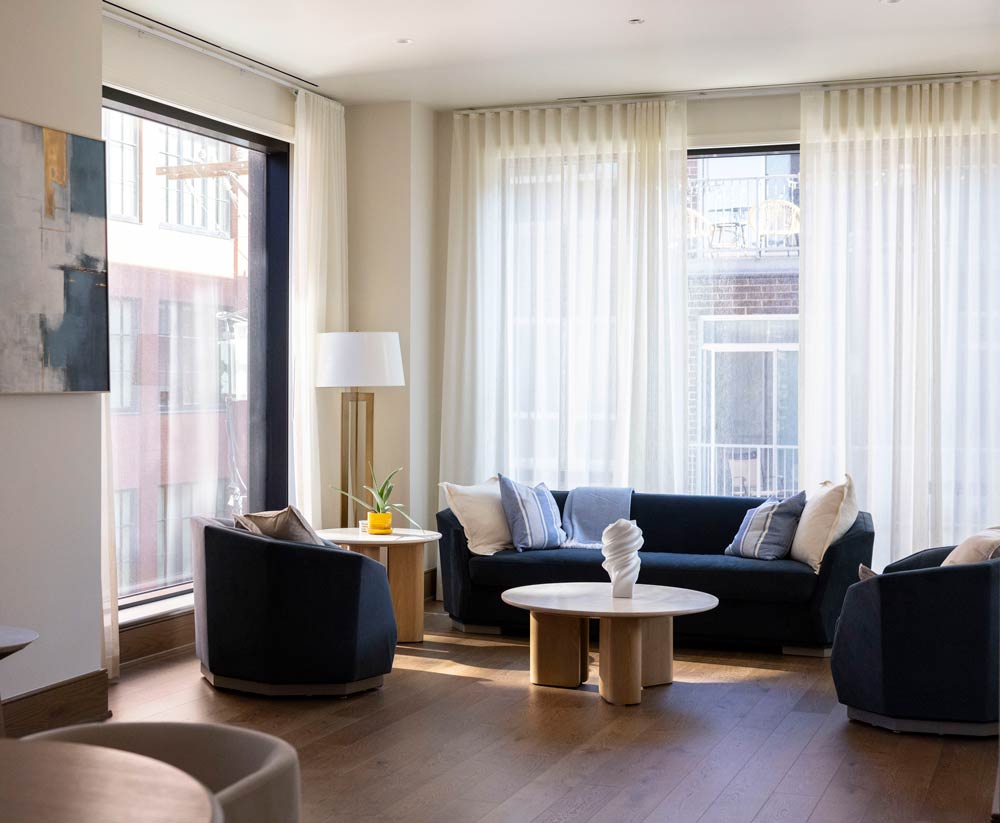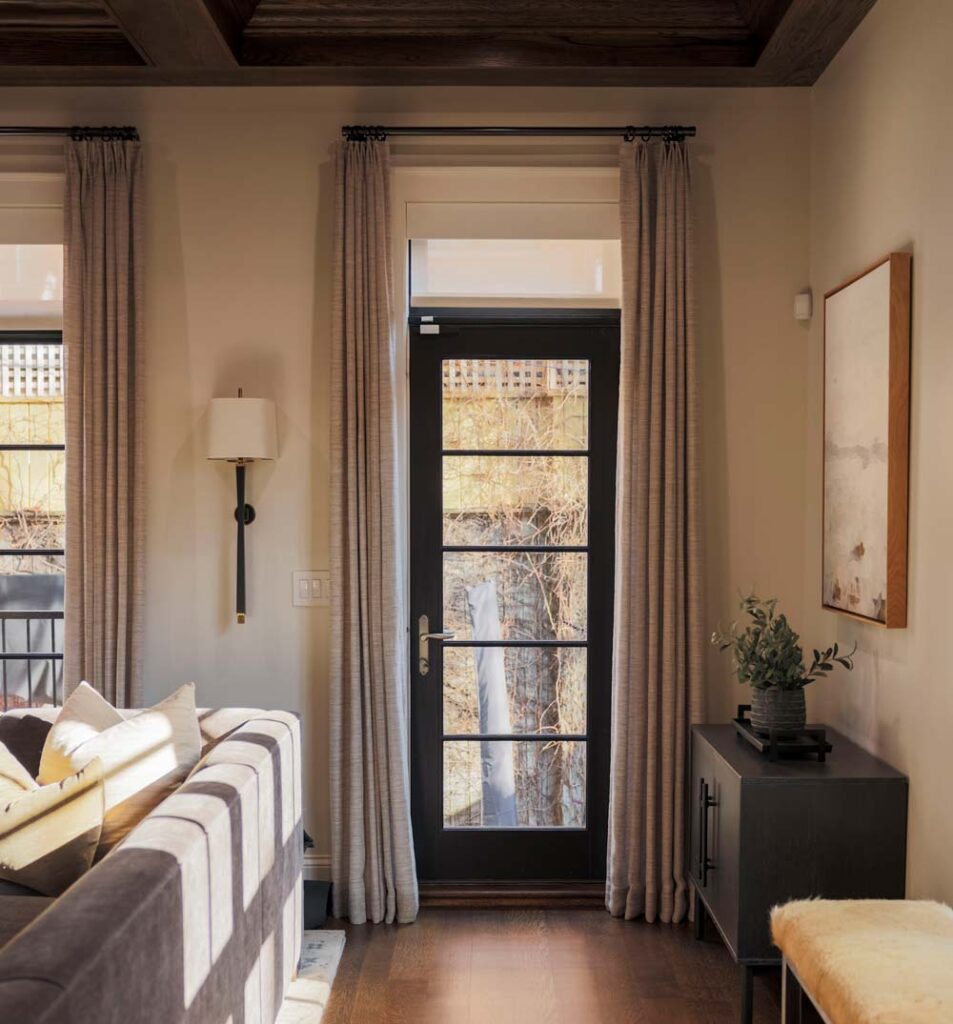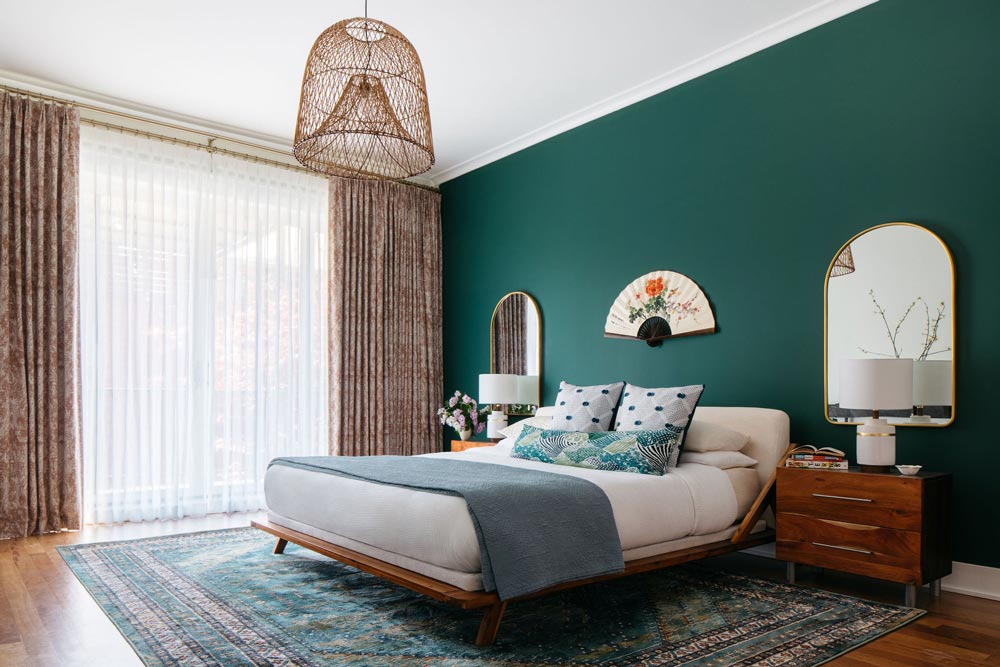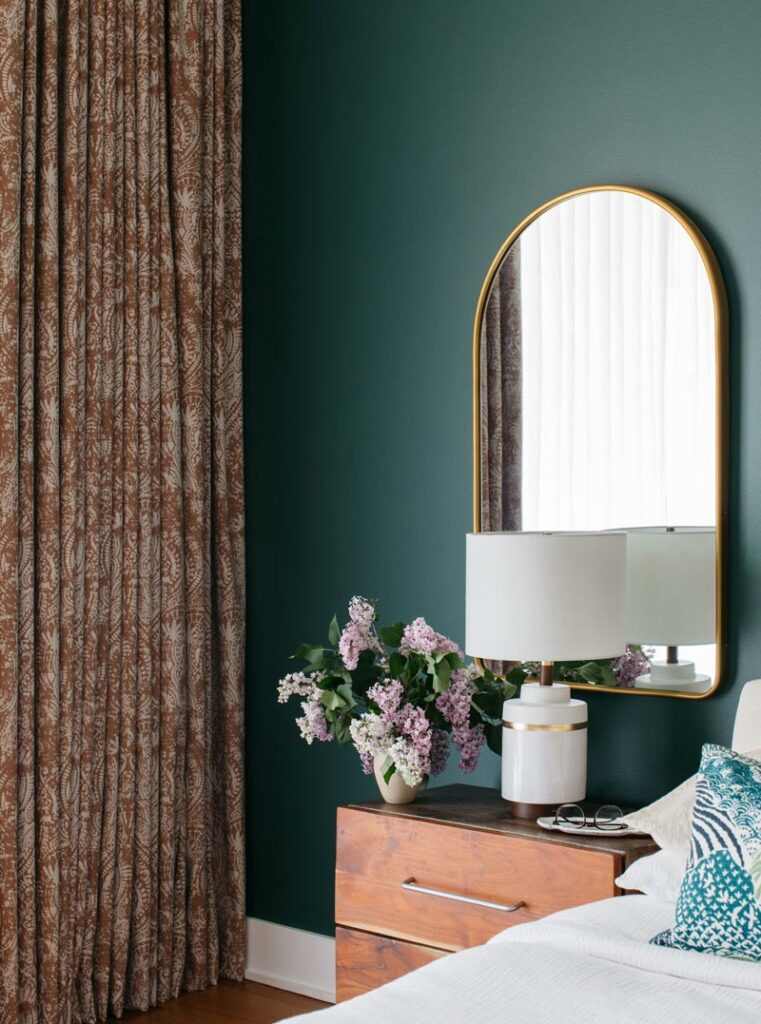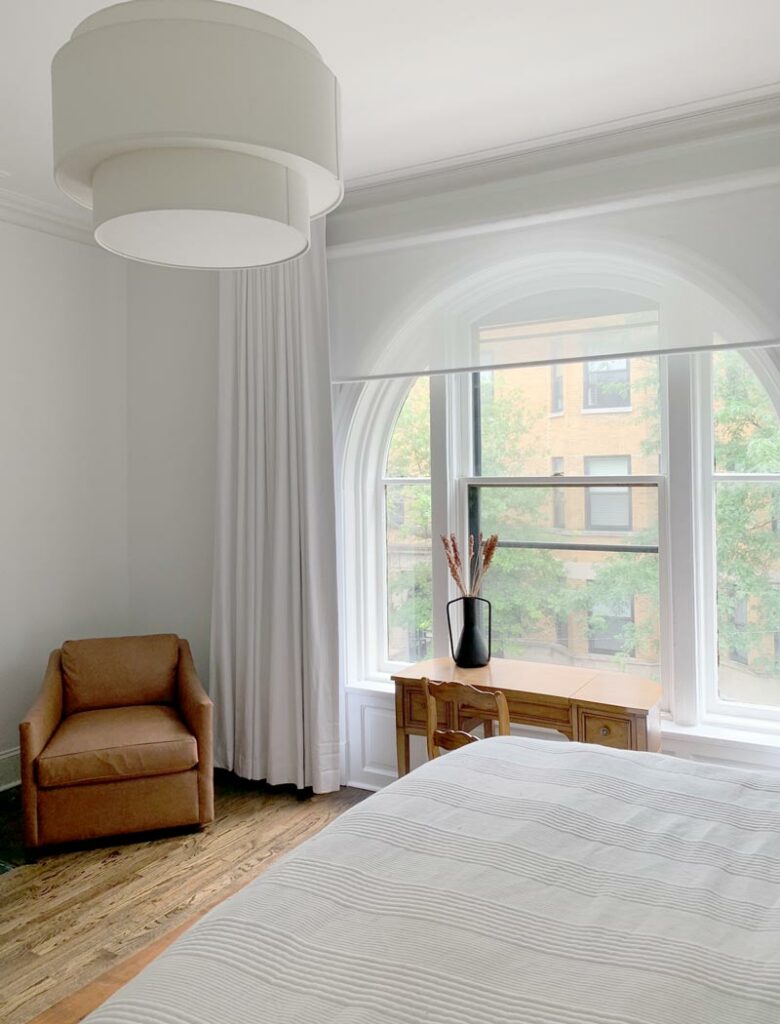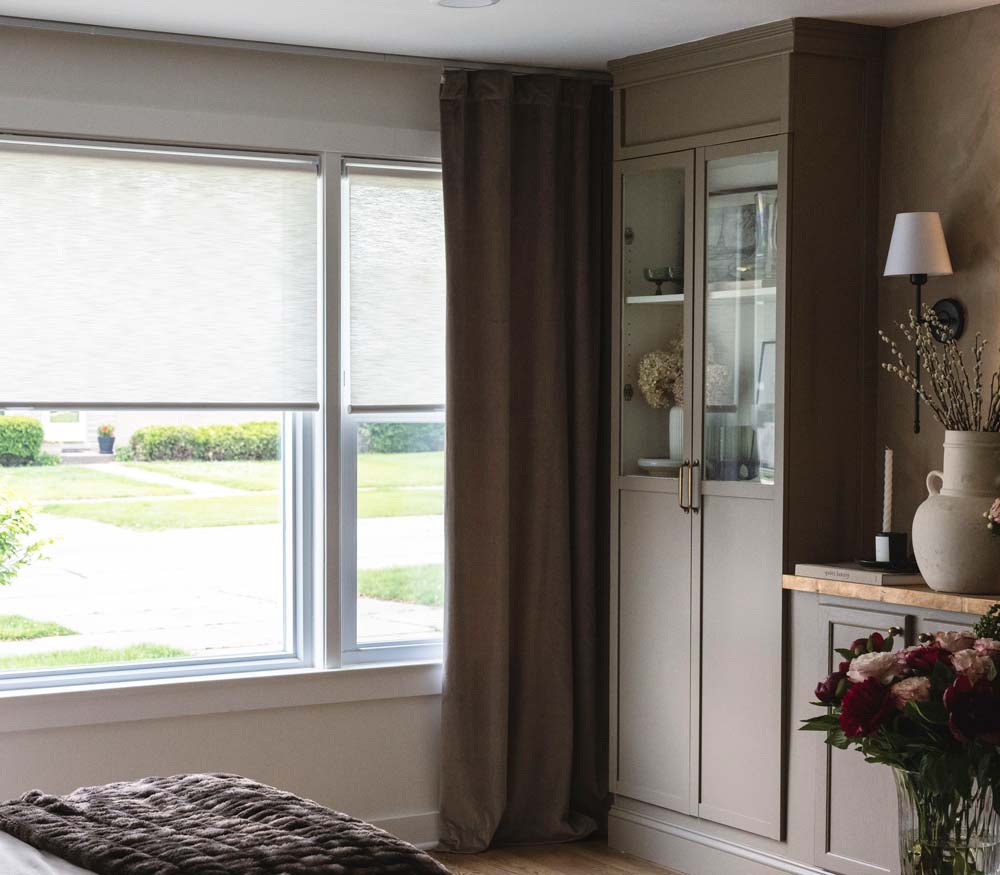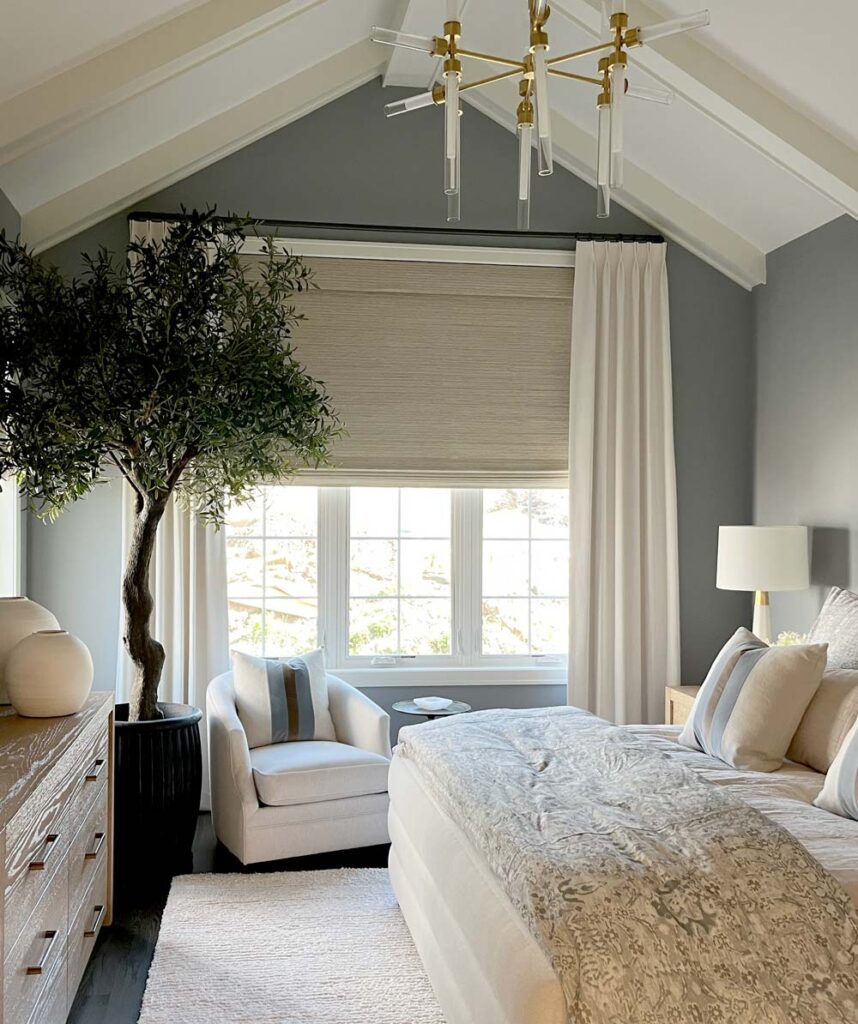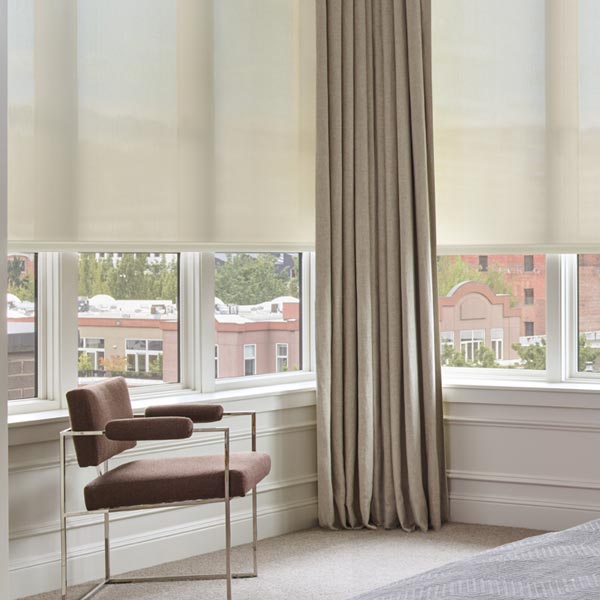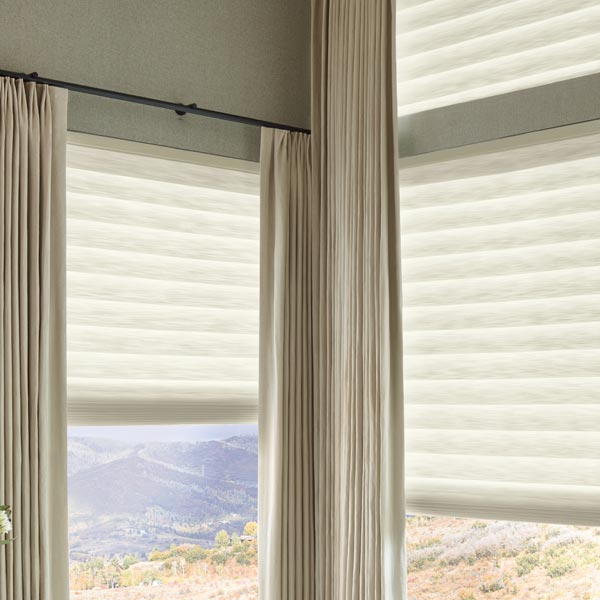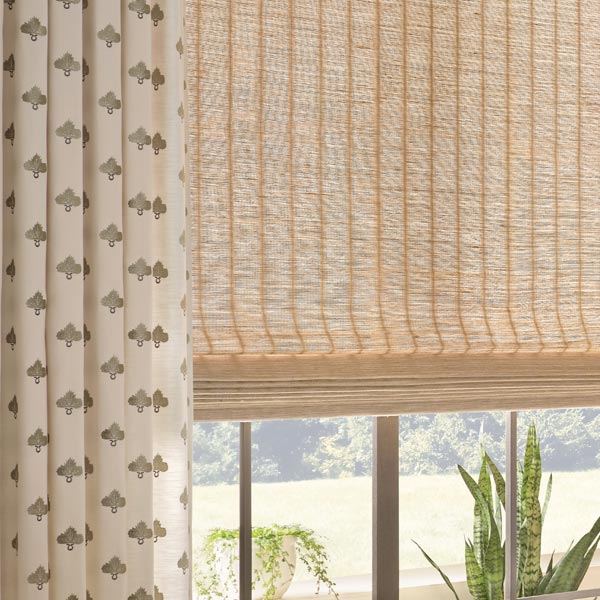Custom Drapes Tailored for You
- Made-to-Order Any Size Window
- Beautiful Fabrics (Patterns & Solids)
- In-Home Measurement & Design
- Contemporary Curtain Hardware
- Smart Drapes Available
- Blackout Curtains for Bedrooms
Our window curtains are designed to heighten the style and atmosphere of your home. Curated from a wide selection of specialty fabrics, custom drapes are a beautiful addition to any style home, from trendy to timeless–and everywhere in between. Motorized drapes add incredible convenience to your home’s atmosphere, opening and closing on command or on a schedule. Those floor-to-ceiling windows? Our custom drapery is crafted to fit even the largest windows, adding height to the ceiling, and allowing you to have customized control of light and privacy, no matter the size of the window. Stationary Drapes, known as side drapery panels, frame the window. These side window curtains are often layered with blinds or shades to add visual interest and added light control. Both full drapery and side drapes layer beautifully with soft window treatments, such as roman and roller shades.
Custom Curtains: A Textile Dream
Add texture, depth, and character to your home with custom drapery fabrics in a wide range of colors, materials, and patterns. Curate a space that is uniquely yours.
Popular Drapery Fabrics
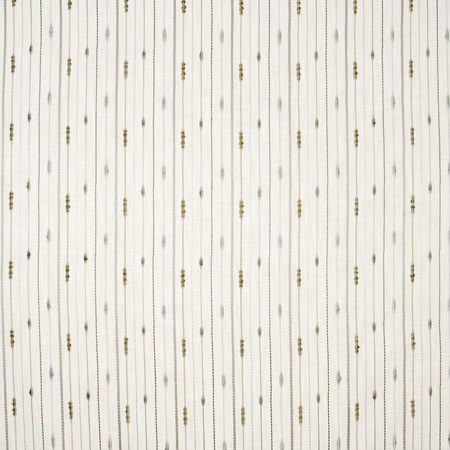
Simmering Attraction Chrome
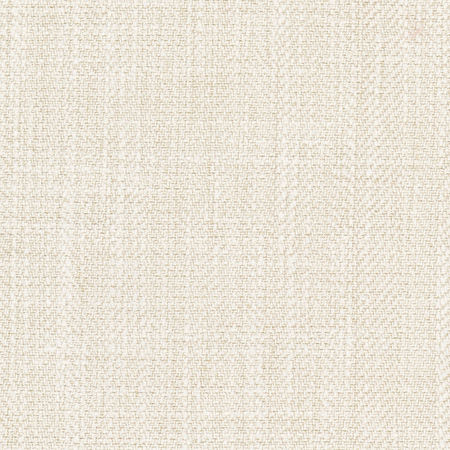
Goodrich Sand Dollar
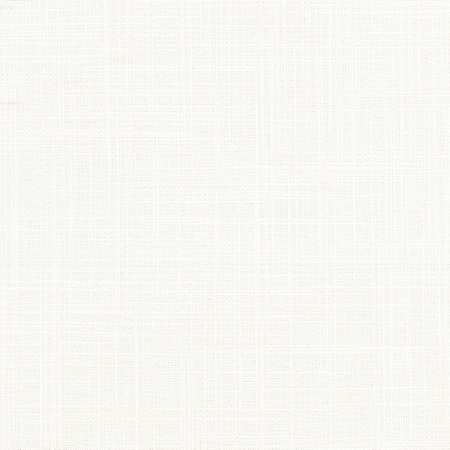
Driskol Powder
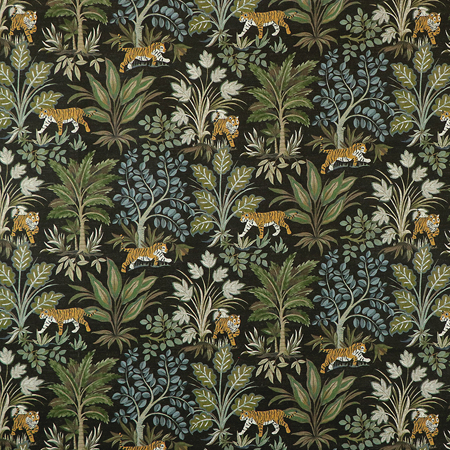
Tiger Hunt Chocolate
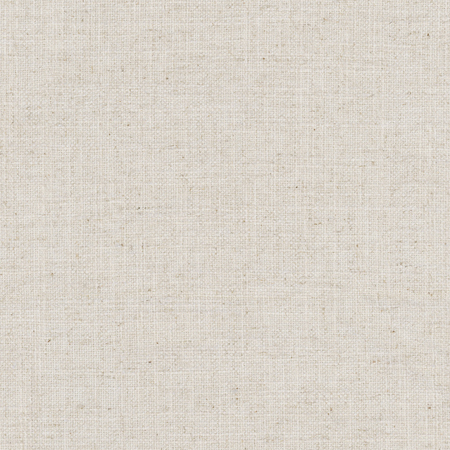
Sheriff Steel
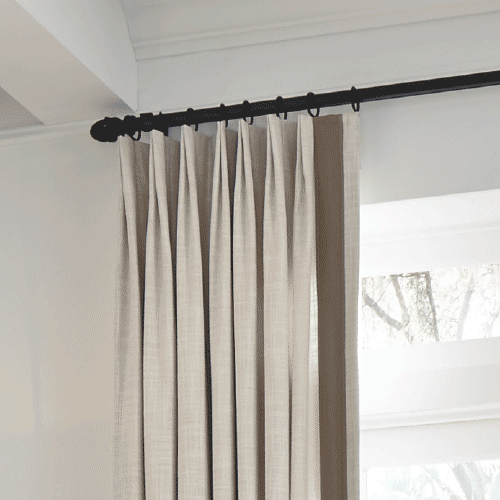
Drapery Hardware & Pleat Options
The details behind custom drapery can get overwhelming if you’ve just started shopping. Two of the biggest details are header style and drapery hardware. Let’s talk specifics about each of these so you can find what you love for your window curtains.
Top Header and Pleat Styles for Window Draperies
The header style of drapes and curtains refers to how your custom drapery is finished at the top–how it’s able to connect to the drapery rod, or hardware. Ripple Fold, Pinch Pleat Drapes and Grommet styles are the most popular.
Ripple Fold Drapery offers a consistent look of the drapery fabric from top to bottom, creating a look that almost “floats” across the curtain rod. The “S” shape of the ripples is how it got its name, and it works well with a variety of home design styles.
Pinch Pleat Drapes gather the drapery fabric in single, double or triple folds. The gathers are sewn together, often attached with hooks or curtain rings. Considered more traditional, it’s also one of the most timeless looks.
Grommets use circular hardware fixed into the curtain fabrics to easily glide across the drapery rod. This is considered more modern, and it’s a style that looks great with solid and patterned fabrics alike.
The way your custom drapery is finished at the top completes the look of your room, matching your style preferences.
Drapery Hardware Options
The hardware for your custom drapery or curtains refers to the rod or track used to hang them, which can be finished on each end with finials–in a range of styles. Curtain hardware also includes the details of drapery rings, track hooks, or tie back hardware. Available in matte black, brass, oil-rubbed bronze, brushed nickel, and wood, the drapery hardware finishes are chosen to complement design details in the space. Both the header style and the hardware you select for your custom drapery will enhance the style of your home.
Motorized Drapery Rod
Motorized drapes are an amazing way to enjoy hands-free control of your custom drapes. Control your motorized curtains with a remote, the app on your phone, or with a voice command. Schedule smart curtains to close at specific times of day to allow for temperature control or added security with a “lived in” look, even when you’re traveling. Sleep in late on the weekends when you schedule your blackout curtains stay closed later in the morning. Explore beautiful hardware options with finials that showcase your style, in a variety of color schemes, like matte black or white, satin nickel and brass. Smart drapes are the high-end window treatments you’ve been dreaming of.
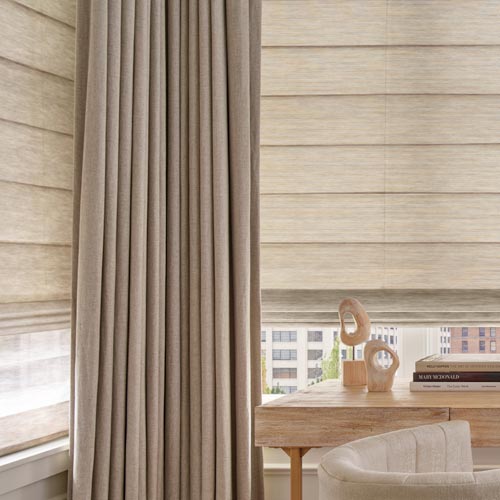
Layered to Perfection
Layering window drapery with shades or blinds can heighten the style of your home. It allows you to create visual interest with colors, textures, and patterns. Both roman shades and roller shades are a popular option for the background position, adjusting open and closed for light control, energy savings, and privacy. The window curtains you select can either frame the window for a designer statement and side control of lighting, or they can be fully adjustable drapes that open and close for added benefits.
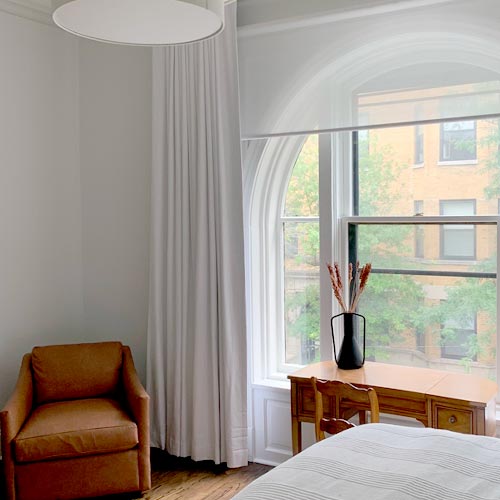
Drapery Lifestyle Solutions
Custom drapery adds beautiful design, but the solutions are life-changing. Beyond light control and privacy, the operating features and drapery fabrics you select can be vital to the atmosphere of your home.
Smart Drapes are available to adjust with a tap, a voice command, or on a schedule. Our Smart Curtains are controlled with the PowerView automation system, which allows you to schedule adjustments, or integrate into your smart home system for triggered adjustments. Motorized curtains can also function as remote control drapes, opening, closing, and adjusting with a tap on a remote or wall-mount control.
Blackout Curtains can provide the darkness you need for sleep at night–or during the day. The key to getting the right amount of room darkening is in the fabrics you choose. Your window covering specialist can evaluate your home, and how the light interacts with the space, in addition to the depth of your windows. Blackout liners can also be essential to achieving the right amount of light control.
Thermal Drapery protects the interior of your home from intense sunlight and heat. Not only do energy saving window curtains provide a barrier for exterior heat and air influencing the interior temperature, but they block light. Entering light hits surfaces of your home, heats them up, and then that heat cannot escape. Thermal drapes keep light from entering in the first place.

